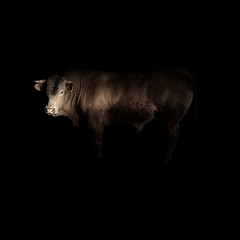 Note: This post contains mild spoilers.
Note: This post contains mild spoilers."Tragedy" is one of those terms whose true meaning has warped over time. Crack open Merriam-Webster and you'll see it defined as "a very bad event that causes great sadness and often involves someone's death" or "a play, movie, etc., that is serious and has a sad ending (such as the death of the main character)." Such definitions prompt a yeah, but response. Yeah, they're true, but tragedy involves so much more, particularly when talking about stories. For example, Holman and Harmon's A Handbook to Literature draws on Aristotle's Poetics to define the term, saying that "tragedy recounts a causally related series of events in the life of a person of significance, culminating in an unhappy catastrophe, the whole treated with dignity and seriousness." It secondary definition deals with "hamartia: the error, frailty, mistaken judgment, or misstep through which the fortunes of the hero of a tragedy are reversed." So tragedy needs more than sadness, needs a cogent rationale for why the protagonist slides from happiness to horror.
You may wonder why I am mulling over all this. Well, it's because I just got done watching Michael R. Roskam's 2012 crime drama Bullhead.
Jacky Vanmarsenille is a big slab of meat. No offense intended, the man simply bulges with muscle, as broad and rippling as the steers his family raises. Both the bovines and Jacky have secrets, though. For years, the Vanmarsenille family has illegally dosed the herd with a hard-to-detect growth hormone that boosts mass by as much as 10%. As for Jacky, he knows about hormones, owing his physique to a constellation of bottles that line his medicine cabinet. It's the only choice he has if he want to look like a man. Why? A maladjusted bully emasculated Jacky with a brick when he was only a child. Jacky has done his best to hide both his physical deformity and criminal activity over the years, but the murder of a policeman investigating the hormone trade is about to bring all sorts of ill deeds to light.
Bullhead has a sad ending. No surprise there. You can tell from its grim palette and frequent close ups of Jacky's alternately befuddled and enraged face that Roskam wasn't trying for a light tone. It might surprise genre fans, though, to learn that Bullhead focuses more on Jacky's tortured psyche than the crowd-pleasing crime elements of its plot. Roskam has sketched a harrowing portrait of man denied the comforts of a family through no fault of his own, a man subject to subtle scorn from others and crippling self-doubt. Gazing out over a holding pen, Jacky says, "I've always felt just like these bulls here. Never knowing what it's like to protect someone. Calves, a herd, like a wife, children. Really having to protect them, because you have to and it's in your nature."
Downbeat stuff, but can you really call the movie a tragedy? Maybe. Jacky makes a mistake or two, no doubt about it, but wrongdoings don't exactly bring to mind Macbeth or Lear. His primary problem is that he lacks the biochemical cocktail of which 49% of the world's population partakes. "I haven't got what I'm supposed to have," he says simply enough at the film's climax. It's certainly sad, but hardly centers on a heartbreaking hamartia, the stuff of high moral drama. Crooked chemistry just doesn't seem to make for compelling tragedy.
(Picture: CC 2011 by Ferran Jordà)


No comments:
Post a Comment